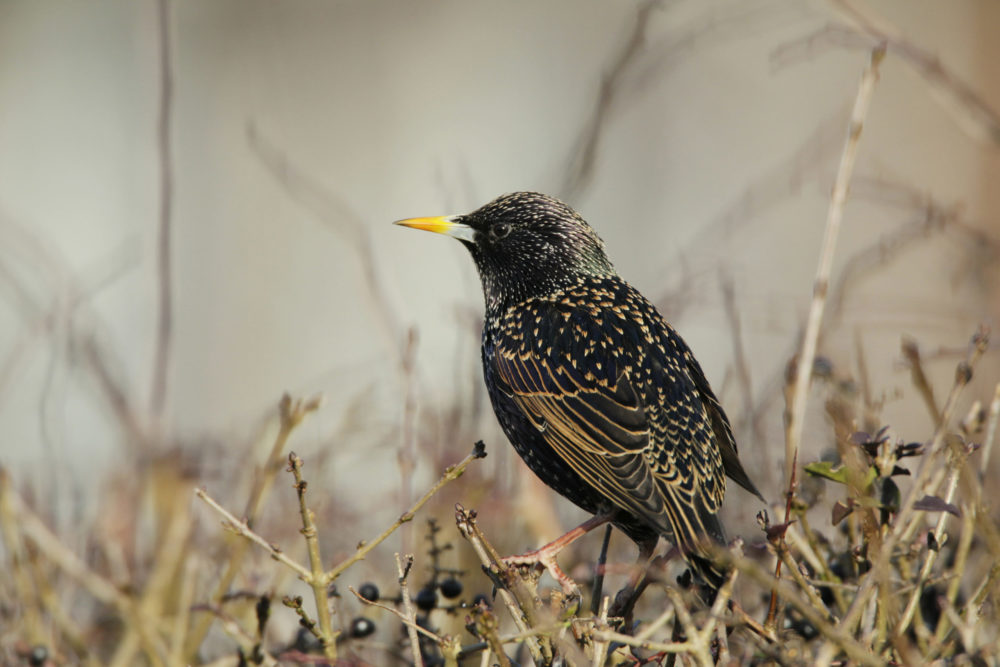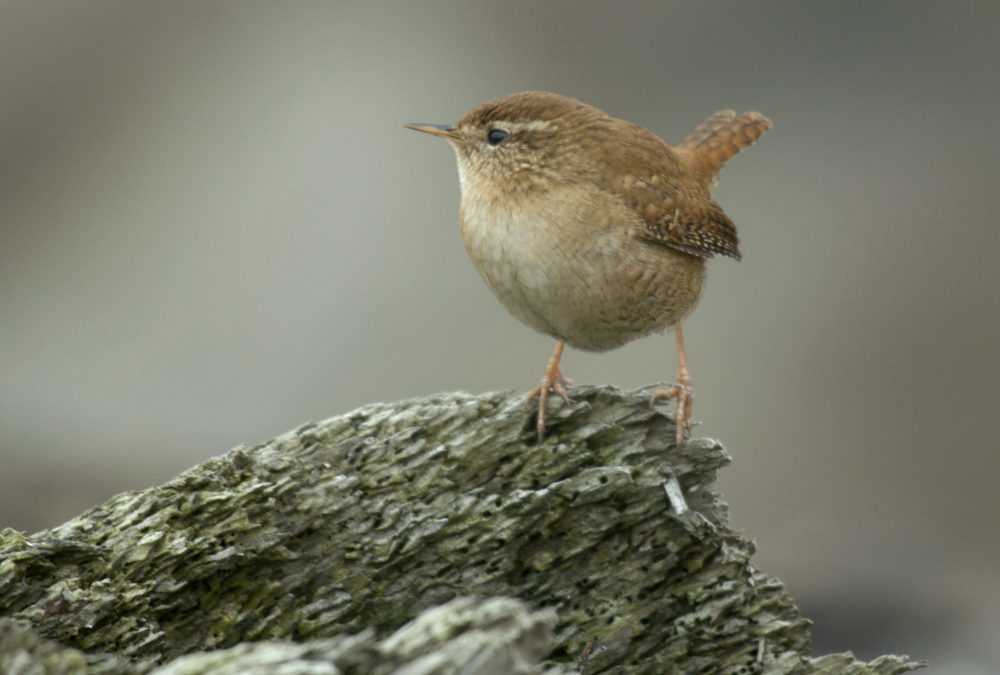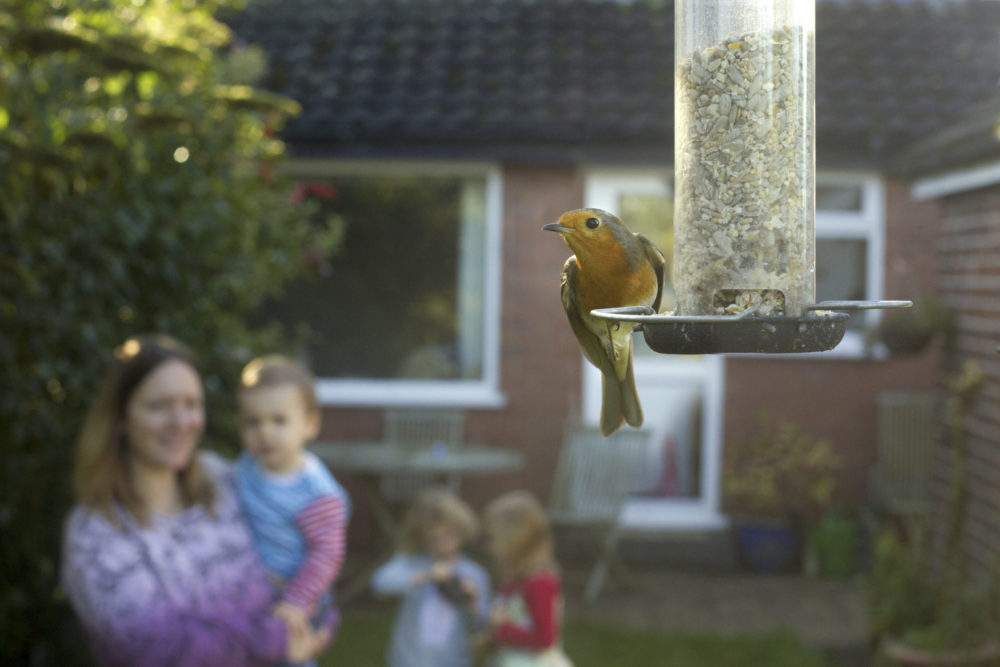Big Garden Birdwatch 2024 – help nature in just one hour this weekend

This weekend (26, 27 and 28 January) RSPB Cymru is inviting the nation to spend a relaxing hour reconnecting with nature by taking part in the world’s biggest garden wildlife survey.
To take part in the Big Garden Birdwatch 2024, watch the birds in your garden, on your balcony, or in your local green space for one hour at some point over the three days. Only count the birds that land, not those flying over. Tell us the highest number of each bird species you see at any one time – not the total you see in the hour.
Invaluable
Last year over 26,000 individuals and teams of citizen scientists submitted their responses, counting over half a million birds in gardens, balconies, and parks. And for RSPB Cymru, this provides an invaluable snapshot of the health of Wales’ most common bird populations.
More than two years since the Senedd declared a nature and climate emergency, RSPB Cymru believes we have come to a point where nature can’t wait. Urgent, radical, ambitious changes from our political representatives must be introduced to save nature , and to reverse the devastating losses we’ve seen over the past decades.
But while RSPB Cymru calls for ambitious, game-changing legislation from the Welsh Government, the Big Garden Birdwatch is the perfect way for every member of the public to play their part in saving Welsh nature; sending a strong message to the Senedd that Wales as a whole wants to save nature – before it is too late.
Nature recovery
Alun Prichard, Director of RSPB Cymru said: “We want this year to be the year everyone across Wales reconnects with nature, by taking part in the birdwatch – and call on our political leaders to be bold and ambitious by prioritising the recovery of our natural world.
“The truth is nature can’t wait – and the time to act is now. The Big Garden Birdwatch at the end of January is that one special moment of the year where everyone – of all ages, backgrounds and from all corners of Wales – can do their small bit to help nature.”

And it isn’t just nature that stands to benefit from the Big Garden Birdwatch. During the Covid pandemic, and especially through lockdown, research showed that nature provided a vital outlet to many people seeking some calm during a stressful and worrying time. RSPB Cymru is keen to emphasise how taking an hour out to relax with nature can do a world of good.
Alun Prichard continued: “Not only does the birdwatch allow us to connect with nature, but quite simply, when we’re looking after nature, we’re looking after ourselves. It’s the perfect excuse to put the screens down, relax and let our senses focus on the wonderful sights and sounds that the natural world can offer us.”
Citizen science
This year’s event marks 45 years since the first Big Garden Birdwatch. Starting in 1979, it has since become a much-loved annual citizen science event, that gives the RSPB a valuable snapshot of how our garden birds are doing in the UK. Over that time, 185 million birds have been counted and nearly 11.5 million hours spent watching and counting garden birds.
Advice for getting your garden ready
Pick the right food – There are lots of different bird foods available, including mixes for bird feeders and bird tables, as well as for ground feeding. Winter is a time when natural food shortages could occur and these foods can help the birds out during this time.
- Blackbirds mostly feed on the ground and will eat a broad range of foods, from fatty nibbles to mealworms.
- Blue Tits and Great Tits use both a feeder and a bird table, eating seeds as well as suet and peanuts.
- Finches, including Chaffinches and Greenfinches, also use both a feeder and a bird table, and they love sunflower hearts. But don’t forget to clean them weekly to avoid spreading disease.
- Look for good quality bird food – those that don’t include ‘fillers’ such as dried peas and beans that birds rarely eat. You’ll find some great mixes in our shop.
- You can put out leftovers such as dried fruit, or fruit such as apples and pears. Don’t use anything mouldy or salty though, and if you have a dog don’t put out dried fruit – vine fruits such as raisins can be toxic to them.

Make your garden welcoming to birds
You can put your bird feeder in all sorts of places, but aim for somewhere:
- Quiet – where birds won’t be disturbed.
- Safe – not too close to bushes where predators could hide in wait, but close enough to cover that birds can easily dart to and from. Birds like to have a view all around them while feeding.
- Sheltered from harsh winds.
Wherever you place your feeder, make sure you can see it when you’re indoors so you can get the most pleasure from it! You can even get a feeder that sticks to your window.
Bear in mind, it can take a little bit of time for the birds to get used to a new feeder, so don’t be disappointed if not many birds visit at first. You might also consider including a feeder tray where possible to both save on wasted food, and allow more feathered friends a place to perch.
Remember good hygiene for healthy birds
It’s very important to keep bird feeders, tables and baths clean to stop a build-up of bacteria and viruses that can spread diseases and infections among garden birds. Trichomonosis can be spread by contaminated food and drinking water and you can help by ensuring that feeders, bird tables and bird baths are moved around to stop food waste building up, regularly cleaning with a mild disinfectant and only filling up feeders with enough food to last up to two days. Provision of clean and fresh drinking water on a daily basis.
If you see sick birds where you are feeding, temporarily stop feeding for at least two weeks and leave bird baths dry. We suggest wearing gloves when doing cleaning, that it should be done outside (not in a kitchen sink) and you should wash your hands afterwards.
And finally…
Do not forget to offer a place to drink too, especially if the weather has turned icy.
Bird baths are fantastic, however anything shallow will do, or making sure that if you have a pond it can be accessed by birds that may only wish to dip their beak.
To take part in Big Garden Birdwatch visit www.rspb.org.uk/birdwatch
Support our Nation today
For the price of a cup of coffee a month you can help us create an independent, not-for-profit, national news service for the people of Wales, by the people of Wales.







Something for all year around, stop using pesticides including slug pellets, don’t use plastic grass, let your garden edges go and cut holes in fences so hedgehogs can get around and stop using peat based products. No mow is also very good.
Absolutely! Great advice!!!!